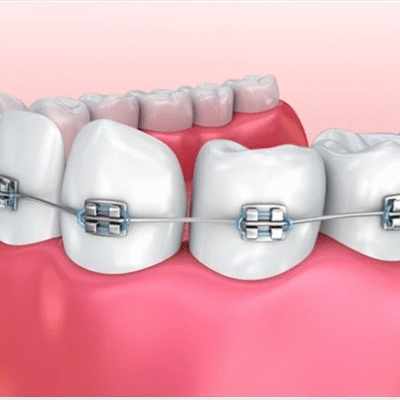In today’s healthcare environment, efficient patient billing is more than just sending invoices—it’s about ensuring accuracy, compliance, and patient satisfaction. Proper billing processes directly impact a healthcare facility’s revenue flow and the overall patient experience. One of the most effective ways medical practices manage billing operations is by leveraging professional Patient Billing Services. These services not only reduce errors but also help build patient trust through transparent financial communication. Meanwhile, comprehensive Medical Billing Services play an equally critical role in improving reimbursements and streamlining revenue cycles across medical practices.
The Importance of Patient Billing in Healthcare
Patient billing is one of the most sensitive yet crucial areas in healthcare administration. Unlike provider-to-payer transactions, billing patients requires greater transparency, empathy, and clarity. Patients are not just numbers—they are individuals who need clear communication regarding charges, insurance responsibilities, and out-of-pocket costs.
Healthcare providers that prioritize accurate billing enjoy several advantages, such as:
-
Reduced billing disputes and confusion.
-
Increased patient satisfaction and trust.
-
Better collection rates from patients.
-
Stronger compliance with healthcare regulations.
By outsourcing Patient Billing Services, providers can ensure accuracy in every step, from charge capture to collections.
Common Challenges in Patient Billing
Even with advanced systems in place, patient billing presents unique challenges. Some of the most common issues include:
-
Insurance Verification Errors – Miscommunication or mistakes during insurance eligibility checks often result in patients being billed incorrectly.
-
Coding Errors – Improper coding leads to inaccurate billing, creating disputes and delays in payment.
-
Lack of Transparency – Patients may not fully understand their bills, causing dissatisfaction and delayed payments.
-
Delayed Collections – Inefficient billing cycles often lead to overdue accounts, harming cash flow.
-
Compliance Issues – Healthcare billing is heavily regulated, and even minor errors can result in legal and financial penalties.
These challenges highlight why professional patient billing solutions are essential.
How Patient Billing Services Improve Efficiency
The adoption of expert billing services brings order, precision, and accountability into a complex process. Professional providers offer:
-
Accurate Charge Capture – Ensuring no service or treatment goes unbilled.
-
Transparent Statements – Patients receive easy-to-understand bills with detailed breakdowns.
-
Improved Collections – Faster follow-ups and structured payment plans increase patient payment rates.
-
Compliance Assurance – Adherence to HIPAA, CMS, and other healthcare regulations.
-
Automation and Technology Integration – Reducing manual errors and increasing speed through electronic billing systems.
With these features, practices not only improve patient experience but also secure their revenue flow.
The Role of Technology in Patient Billing
Technology has significantly changed how billing is managed. Features like online bill pay, patient portals, and electronic reminders make the process simpler and more transparent. These advancements empower patients to manage their healthcare finances conveniently.
Some notable technological benefits include:
-
Patient Portals for viewing and paying bills online.
-
Automated Reminders to reduce missed payments.
-
Data Analytics to identify revenue leaks and improve billing accuracy.
-
Integration with EHRs for seamless flow of medical and billing data.
Patient Satisfaction and Billing Transparency
One of the main reasons patients feel dissatisfied with healthcare is due to billing confusion. Providing clear and concise bills improves the trust between patients and providers. Patient billing services focus on:
-
Offering itemized statements.
-
Clarifying insurance responsibilities.
-
Providing flexible payment options.
This transparency not only improves collections but also strengthens the provider-patient relationship.
The Link Between Patient Billing and Revenue Cycle Management
Patient billing is a subset of the broader revenue cycle management (RCM) process. If billing errors occur, they can negatively affect the entire revenue cycle. For instance:
-
Incorrect billing delays payments.
-
Confused patients may dispute charges.
-
Poor follow-ups lead to uncollected revenue.
Efficient billing ensures that the revenue cycle remains healthy and that practices are paid on time.
Why Outsource Patient Billing Services?
Healthcare providers are increasingly outsourcing billing tasks to specialized companies for multiple reasons:
-
Cost Savings – Eliminates the need for in-house billing teams.
-
Access to Expertise – Professionals understand the latest regulations and coding standards.
-
Improved Cash Flow – Faster processing and collection of payments.
-
Scalability – Services can grow with the practice.
-
Focus on Patient Care – Providers can dedicate more time to treatment rather than administrative tasks.
Outsourcing is not just about reducing workload—it’s about ensuring revenue optimization.
Choosing the Right Patient Billing Partner
Selecting the right partner is critical to the success of patient billing. Key factors include:
-
Proven experience in healthcare billing.
-
Compliance with HIPAA and CMS guidelines.
-
Strong technological infrastructure.
-
Transparent reporting and accountability.
-
Patient-centered communication strategies.
A trusted partner ensures both the provider and patients benefit from streamlined processes.
The Future of Patient Billing
The future is moving toward patient-friendly billing models. The industry is focusing on:
-
Price Transparency – Patients want upfront cost estimates.
-
Digital Payments – Faster, mobile-friendly billing solutions.
-
Personalized Communication – Customized statements and reminders.
-
Artificial Intelligence (AI) in Billing – Predicting payment patterns and reducing errors.
These advancements will shape a more efficient and patient-friendly billing environment.
Conclusion
Efficient Patient Billing Services are no longer optional—they are essential for sustainable healthcare practices. By providing transparency, accuracy, and compliance, they improve patient trust while ensuring timely collections. Meanwhile, professional Medical Billing Services integrate seamlessly into revenue cycle management, helping practices achieve long-term financial stability. Healthcare organizations that embrace these solutions are better equipped to thrive in a patient-focused, value-driven industry.
FAQs About Patient Billing Services
Q1. What are Patient Billing Services?
Patient Billing Services involve managing billing processes related to patients, including charge capture, statement generation, collections, and communication.
Q2. Why is transparency in patient billing important?
Transparent billing reduces confusion, improves trust, and increases timely payments from patients.
Q3. How do Patient Billing Services improve collections?
They streamline billing, send timely reminders, and offer flexible payment plans, making it easier for patients to pay.
Q4. Can Patient Billing Services reduce compliance risks?
Yes. Professional billing services ensure adherence to healthcare laws and regulations, reducing risks of penalties.
Q5. What technologies are used in patient billing?
Common tools include patient portals, automated reminders, online payment systems, and integration with EHRs.
Q6. Should small practices outsource patient billing?
Yes. Outsourcing allows smaller practices to save costs, access expertise, and focus more on patient care.




